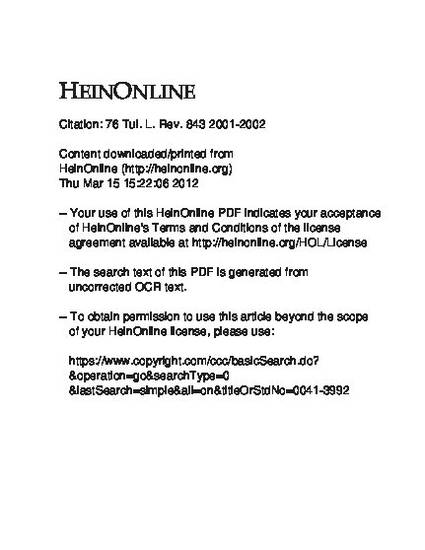
Developing nations are demonstrating some success in basing their participation in international environmental governance upon commitments by developed nations to provide financial resources and technology transfer. In recent years, these commitments have achieved textual status with a number of multilateral agreements. Part II of this Article identifies and documents treaty-based examples of this swap of resources in exchange for participation, with particular focus on the areas of climate change, biodiversity use/conservation, and ozone protection. This Article suggests that this swap represents a dynamic and emerging relationship between the North and the South that can best be described as a "shared compact" Part III explores the juristic basis of the shared compact. Although treaty-based, the shared compact derives from several important and interdisciplinary principles of international environmental and economic law, moral philosophy, and international relations theory. In Part IV, this Article argues that among these diverse sources, the shared compact largely is the result of 'selfish justice." The primus inter pares nature of the selfish justice motivation explains why the environmental issue-areas in which the shared compact has arisen (and would arise in the future) tend to be ones in which common concerns of humanity are threatened or in which externalities are imposed on the developed world and not issue-areas with local impact upon developing nations alone, regardless of the severity of that impact. Part V raises important questions triggered by the emergence of the shared compact. These include: (1)juridical questions related to the legal status of the transfer commitments, (2)practical questions related to the ability of these commitments to enhance compliance with, and implementation of, the international environmental agreements in which they are found and (3) political questions related to the plausibility of maintaining the political will in the North to remain within a shared compact given increased awareness of the costs thereof. In the end, the shared compact may extract international environmental governance from certain impasses. But it may replace these with new, and potentially insurmountable, ones.

"Mark A. Drumbl, Poverty Wealth, and Obligation in International Environmental Law, originally published in 76 TUL.L.REV. 843 (2002). Reprinted with permission of the Tulane Law Review Association, which holds the copyright."